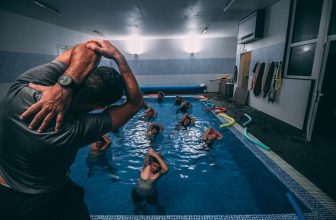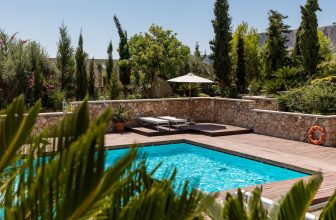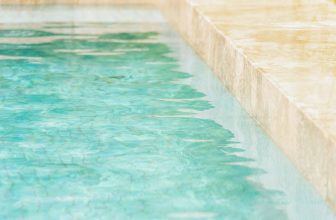
Are you planning to keep your pool sparkling clean and have decided it’s time for a new pump? The pool pump is the heart of your swimming pool’s circulation system, and choosing the right one is crucial for maintaining water quality and preventing issues down the line. In this comprehensive review, we’ll explore the best pool pumps on the market, assessing factors like reliability, efficiency, noise level, and cost.
Our Top Picks
Our #1 Top Pick: Pentair IntelliFlo Variable Speed Pool Pump
If efficiency and advanced features are top of mind, the Pentair IntelliFlo is a top-tier choice. This variable speed pump is famed for its energy-saving abilities, capable of reducing energy costs by up to 90% compared to traditional single-speed pumps. With a built-in timer and 8 programmable speed settings, you have complete control over its operation. Moreover, its ultra-quiet performance doesn’t disrupt the peaceful poolside ambiance. The robust construction and permanent magnet motor contribute to its longevity and reliability, making it a favorite among pool professionals. The IntelliFlo is also compatible with Pentair automation systems, allowing seamless integration into a smart pool setup.
Pick #2: Hayward Super Pump VS Variable-Speed Pool Pump
Hayward has been a household name in the pool pump industry for years, and the Super Pump VS upholds this legacy. This variable-speed pump is an excellent choice for those seeking versatility without breaking the bank. Designed for medium to large pools, its energy-efficient operation conforms perfectly to your pool’s needs, potentially offering up to 80% energy savings. The digital interface is user-friendly, and the installation is straightforward. Don’t worry about noise, as the Super Pump VS operates quietly. It’s also designed to withstand the elements with a robust build, ensuring that it’s a long-term investment for your backyard oasis.
Pick #3: Blue Torrent Cyclone Variable Speed Pool Pump
Emphasizing durability and power, the Blue Torrent Cyclone is a game-changer for many pool owners. Its motor is built with longevity in mind, promising reliable performance season after season. The true variable-speed settings allow for precision control, adapting to various pool tasks from filtration to heating. This pump is also energy star certified, which means savings on your electricity bill and a smaller carbon footprint. Moreover, it comes with a 360-degree rotatable display for ease of access, making adjustments and monitoring a breeze.
Pick #4: Harris ProForce Above Ground Pool Pump
For above-ground pool owners, the Harris ProForce pump presents an affordable yet efficient solution. This pump packs a punch with a powerful motor that ensures consistent water flow. Although it operates on a single speed, it’s designed to be more energy-efficient than some contenders in its category. Exceptionally easy to install and maintain, the Harris ProForce comes with clear instructions and a sizable strainer basket that doesn’t need frequent cleaning. Though a tad louder than variable-speed models, its performance is formidable, offering good value for those with less complex pool systems.
Pick #5: Sta-Rite SuperMax VS Variable Speed Pool Pump
Sta-Rite’s SuperMax VS marries easy operation with flexible performance. This variable-speed pump is a suitable choice for standard pools that require a dependable yet simple system. Users rave about its straightforward programming and the fact that it’s designed to be a drop-in replacement for many existing pumps, which means less hassle during upgrade time. Energy efficiency is one of its strong suits, providing a noticeable cut in energy usage. Additionally, the pump has a sound-dampening base for a quieter operation and a built-in diagnostics system to ensure it runs optimally for as long as possible.
What to Know Before You Buy
Purchasing a pool pump requires understanding your pool’s specific needs and the features offered by different pumps. Here’s what you should consider before making your decision:
- Type of Pool: Above-ground and in-ground pools have different requirements; ensure you’re looking at pumps designed for your pool type.
- Pool Size: Understand the volume of your pool to determine the appropriate pump size. It’s critical to match the pump’s flow rate to your pool’s capacity.
- Power Source: Most pumps require a 110V or 220V power source. Check your available electrical supply before buying a pump.
- Pump Type: Variable-speed pumps offer greater efficiency and energy savings, whereas single-speed pumps are typically more affordable upfront but costlier to operate.
- Compatibility: Verify that the pump is compatible with your existing filtration system and any pool automation equipment you have or plan to purchase.
Factors to Consider Before Buying
Selecting the best pool pump isn’t just about the price tag or brand recognition. Here are essential factors to mull over:
- Energy Efficiency: Look for pumps with ENERGY STAR certification or those with proven lower energy consumption. This can lead to substantial savings over time.
- Noise Level: A quieter pump will contribute to a more tranquil poolside environment, so consider models with low decibel ratings.
- Durability: Pumps that are built to withstand harsh weather and resist corrosion will offer better longevity and performance.
- Flow Rate: Ensure that the pump can handle the flow rate your pool requires. An oversized pump can lead to inefficiencies, while an undersized one may not adequately circulate the water.
- Features: Additional features like programmable timers, digital control panels, and diagnostic tools can greatly enhance convenience and maintenance.
- Warranty: A comprehensive warranty can provide peace of mind and protection for your investment.
Why Trust ChooseRight?
At ChooseRight, our commitment is to provide you with thoroughly researched and objective reviews. When compiling our list of the best pool pumps, we didn’t just rely on manufacturer specifications; we dived into the details by reading thousands of reviews from actual users and seeking feedback from industry professionals. This rigorous approach ensures that we recommend products that truly stand up to real-world use, and we only put forward items that have consistently shown superior quality, reliability, and value to consumers.
Finishing Thoughts
Finding the best pool pump for your swimming pool can be a daunting task, but with the right information and a careful consideration of your pool’s specificities, you can make an informed decision that will enhance the quality of your swimming experience and the longevity of your pool. Remember to balance upfront costs with long-term savings, and prioritize features that match your lifestyle and maintenance preferences. Investing in a quality pool pump is an investment in your pool’s future and in countless hours of enjoyment for you and your loved ones. Choose wisely and swim happily!
Frequently Asked Questions
What should I consider when choosing a pool pump?
When choosing a pool pump, you should consider the size of your pool, the flow rate required to circulate the pool’s water appropriately, the pump’s energy efficiency rating, the type of pump (single-speed, variable-speed, or two-speed), noise level, and compatibility with your current filtration system.
Are variable-speed pool pumps better than single-speed pumps?
Variable-speed pool pumps are generally more energy-efficient than single-speed pumps because they can be adjusted to run at lower speeds for daily filtration and higher speeds only when necessary. This results in lower energy consumption and cost savings over time, despite often higher upfront costs.
How often should I run my pool pump?
Typically, you should run your pool pump long enough to ensure that all the water in your pool is circulated at least once per day. This usually translates to running the pump for about 8-12 hours daily, depending on the pump’s flow rate and the size of the pool.
How do I know if my pool pump is the right size for my pool?
The right size for your pool pump is determined by the volume of your pool and the turnover rate, which is the time it takes to circulate all the pool’s water. A general guideline is that a pump should be capable of circulating the entire pool volume every 8 to 12 hours.
What is the lifespan of a pool pump?
The lifespan of a pool pump can vary depending on the type, model, usage, and how well it is maintained. On average, a well-maintained pool pump can last anywhere from 8 to 12 years.
How can I make my pool pump run more efficiently?
To make your pool pump run more efficiently, you can ensure that it’s the correct size for your pool, regularly clean out the pump basket and filter, reduce the running time if possible, switch to a variable-speed pump if you haven’t already, and maintain a regular servicing schedule.
Can I install or replace a pool pump myself?
While some pool owners with technical expertise can install or replace a pool pump themselves, it’s generally recommended to hire a professional. This ensures that the installation is done correctly and safely, adhering to local electrical codes and manufacturer instructions.
Is it worth investing in an energy-efficient pool pump?
Yes, investing in an energy-efficient pool pump can be worth it in the long run due to lower operational costs. Energy-efficient pumps, like variable-speed models, can significantly reduce energy consumption and lead to substantial savings on your electric bill.
How do I know when to replace my pool pump?
You may need to replace your pool pump if it is making excessive noise, frequently losing prime, leaking, not producing adequate water flow, or if it is beyond its expected service life and repairs are becoming too frequent or costly.
Can a pool pump be repaired, or does it always need to be replaced?
Many pool pump issues can be repaired, such as replacing worn seals, gaskets, or bearings. However, if the pump is old, inefficient, or requires significant and costly repairs, it might be more economical to replace it entirely with a new, more efficient model.







